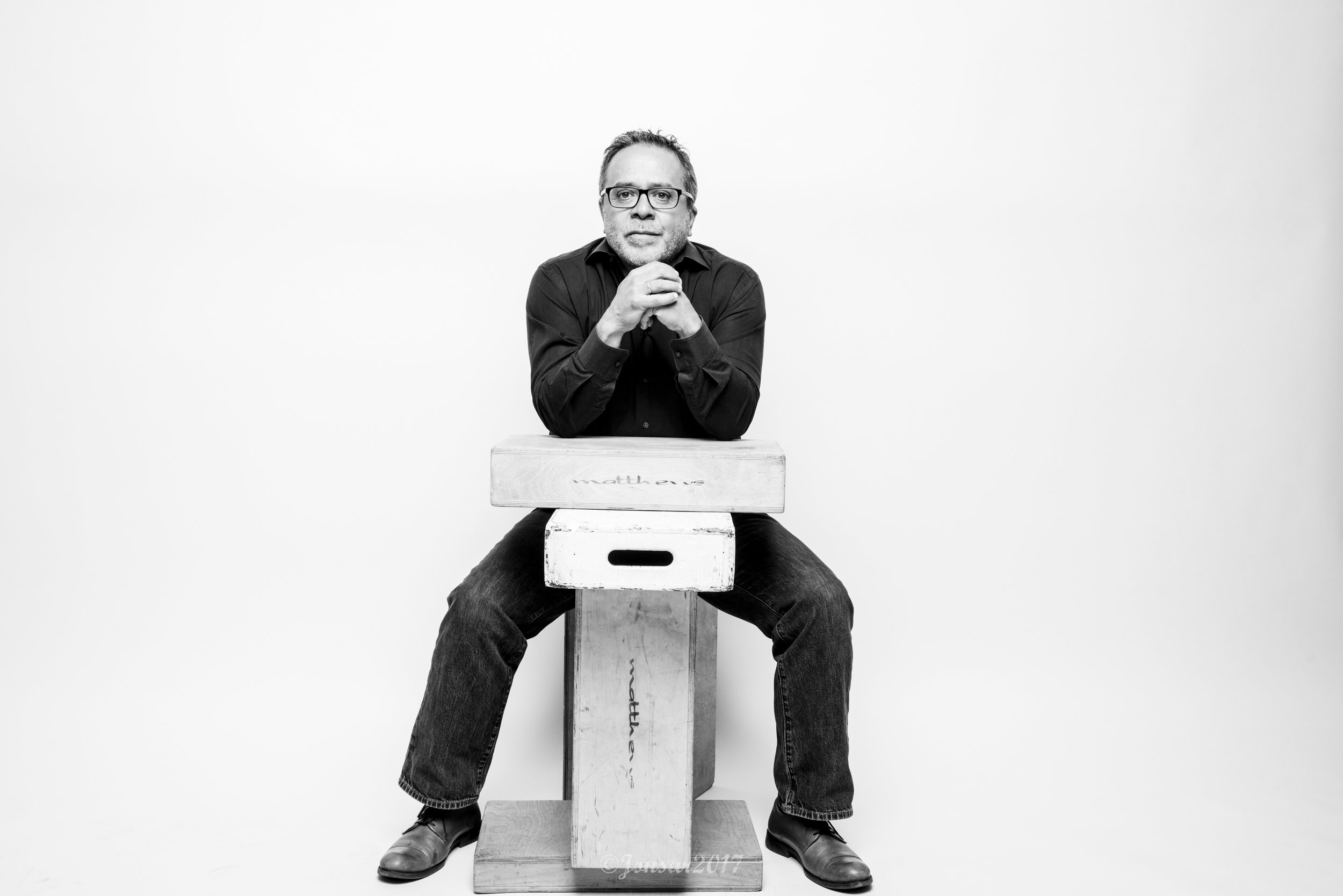Frank Meo - Conversations with Artists
What is the art of what you do?
I try to inspire photographers to be better than they are - to help them gain a sense of business and not get caught in a dead end. I help them see their potential by pushing back the curtain a little bit and recognizing that there's a tremendous amount of opportunity right around the corner.
How do you inspire?
I try to find out what their passions are and what they really care about. I help them realize that wherever they want to go to in their careers or their lives, they can get there. We come up with with a plan. We talk about revamping the website, promotion and social media. I hate to do vast generalizations, but photographers lack the discipline to focus on step one, step two. They want to get to the end immediately. Getting focus is about making logical steps. Through logical steps you can get to your destination and then you’ll have created a machine that you can work with. You have to stop thinking of it as photography and think of it as a business. You can still be creative, but you have to be functional. You have to open up an Excel sheet and create a plan that's going to get you from A to B.
So a large part of what you do is listening.
It’s listening, absorbing and then letting people see what's under their nose — all the opportunities that are right there if they would just get a little more organized. It's getting into their heads, understanding how they think. Having worked for an ad agency I know how an agency runs. Being able to convey that information to a photographer brings them clarity. Once they have clarity, everything else fits into its space about estimating, negotiating and promotion. It's really not brain surgery but is an awareness.
Did you come from an art or a business background?
Being a rep was something that came to me naturally. I feel that I’ve really never worked a day in my life - this is all just enjoyment. I came from working at a terrific ad agency around great photographers. I got to see great work created, but most of all for me, it's always about the people. You have good people, bad people, shitheads and everybody in between. This whole industry is really about people. Shitheads are good, you need them for flavor. They help you appreciate the nice ones.
It’s often said that artists make terrible business people. What’s your take?
That’s a crutch, an excuse. If you're going to be successful in our business, you have to marry both sides, neither to the detriment of the other. I know plenty of photographers who are better business people than they are shooters but they're successful because of their business skills. Just because you’re going to be functional doesn't mean it takes away from your photography. Rather it gives you calmness and it’s going to make your creative spark flourish even more. You need to take care of the foundations of your business - pay your taxes and do the boring stuff because you can't rely on somebody else to do it. The years where you could get a rep and sit back and wait — that’s over. The sooner you realize that you have to promote yourself, you have to be on Instagram, Twitter, LinkedIn — the sooner you’ll find success. You don't have to be an expert but you have to be able to own it to a point where you garner a following. That is the key to being successful. No business nowadays is just luck. It's hard work. Especially in a city like NY or LA or Chicago. If you're not running a business like a business you're done. You're doomed. You cannot do it.
So digging deeper, what is the real art of inspiring someone?
For me, the sweet spot is when I'm sitting with a photographer and I can get into their head. I can see from their work and from talking to them, what’s going to motivate or inspire them. I'll say, ‘I looked at your site’ and tell them what my takeaways were. When they understand that I 'get it' they share more. Photographers trust immensely that I get where they want to go. It's about motivating people and so much of it is right under somebody's nose. They just have to be told to look at it. We're not doing brain surgery - what we're doing is motivating. That's the piece that I love. Then to see the success - what could be more gratifying than that?
Why photography? You could motivate people to do anything.
I love photography. I can think back to certain images and how I felt when I first saw them; the Kent State shooting or the napalm victims in Viet Nam, or the Johnny Cash shot. Those iconic images that I didn't realize moved me but I was really living through them. There’s a Pulitzer Prize-winning image of a family running towards a Vietnam vet who just got off the plane. He had been in prison for four or five years. The girl that's running in front - his daughter — is off the ground. She's almost flying to her father. And you only see the back of the soldier. It's such an incredible image. That was the type of image that got me to love photography.
Are iconic images still being made?
Absolutely. Think about that little boy that washed up on the shore of Italy. Or the Syrian kid in the ambulance. They're being made all the time. But now everyone has a camera so to break through the image has to be really phenomenal.
What opportunities are you seeing for photographers?
Too many people are going after the same small piece of the pie. Everyone is going after that one job coming out of Ogilvy & Mather. I tell people who are in Chattanooga or Cheyenne or Denver: ‘be the best photographer’ in those areas. Nobody's going after that business other than local people. If you can be the best local photographer out of Atlanta or Tampa, you can do a lot of good work. Be the best and then you're going to get recognition nationwide. Why be in NY where there's one still-life job or one fashion job. I've been in agencies where 70 books get called for a single shot. So what are your chances? Whereas if you put a little pin on the map and look within a 70-mile radius of where you live, to the small businesses with 100 people — those companies need to advertise. Nobody is going after that business because everyone's going after that one job from Ogilvy. Go get 10 or 15 jobs from the smaller companies where you can really be a creative resource. A restaurant owner is worried that the avocados are going to spoil. Go to him and say I can shoot this for you. I can produce a brochure, a cookbook, a menu. Then you can take that body of work and go across the street to the widget maker. Tell them you can photograph all of their employees and make something to be proud of. Do a little research. Go online. That's what I mean about being a businessman/woman as it relates to being a photographer. You can’t just be someone who shoots nice images. You've got to be able to sit across the table from somebody and see the opportunities, even if they don't see them. Photographers have to see opportunities and not just think about sending the book up to McCann and hope and pray.
You don't see the business of photography as going away?
Sure there's less work because of stock photography and because too many people have cameras and phones and there is far less printed material. But every company has a website and they're going to need content on those sites. There's a tremendous amount of work, but it takes a tremendous amount of work to get the work. It's not easy, it’s a real commitment. People in Chattanooga and wherever else, are sitting on a goldmine. As long as they're not frustrated that they're not in New York. Unfortunately, they want to get to the promised land without any idea of what it’s really like. You're a big deal in Chattanooga but you come to NYC and you're paying 5 grand a month to live with three other people in a tiny apartment. The grass is always greener - we all suffer from that.
If you could go back in time to when you were 10 or 11, when you were a kid - and whisper in your own ear - what would you say?
The only thing I would say is: be interested and be interesting. That's what I want on my stone. People want to be around you if you're interesting. And you'll be so rewarded for being interested. Whisper in any kid’s ear, ‘be interested, be interesting.’ I think it's such an intense sentence, but it couldn't be simpler. What could be simpler than that?
Frank Meo is a speaker, portfolio reviewer and judge for various trade groups and learning institutions: PhotoShelter, Eddie Adams Workshop, PDN Plus, ICP, Syracuse University, DC Fotoworks, APA, Palm Springs Photo Festival and ASMP. I’ve judged for the Lucie Awards, Sienna Photo Awards, Webby Awards, Moscow Photo Awards and PDN Portraits among other competitions.
Frank has written for a variety of trade publications including: American Photography, Resource Magazine and Pro Photo Daily.
Frank's “Creative Separation" and "Creative Estimating and Negotiation" workshop has been attended by over 1000 photographers nationwide.
Learn more about Frank here.








